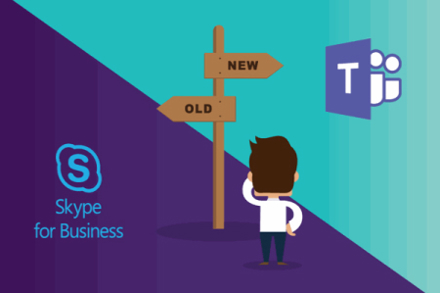Moving to the cloud comes with multiple benefits. For most businesses, it usually means reducing running costs, faster modernisation capabilities and increased security.
Why should you migrate to the cloud?
Every organisation has its own reasons to migrate, but one thing all companies moving to the cloud have in common is that they are looking to modernise their environment.
Businesses may decide to migrate to the cloud because of specific challenges they are facing. Sometimes these may be over-allocated IT resources, or on-premises platforms that limit the adoption of modern services.
Cloud migration can allow effective integration of applications, modernising your workspace and allowing teams to thrive and collaborate more effectively.
Other causes or triggers of cloud migration include: expiry of data centre contracts, business continuity (or the lack there-of), cash flow challenges and cybersecurity threats.
The benefits of migrating to the cloud
There are many benefits of the cloud. While reducing costs and modernising capabilities may be the main advantages, below is a more complete list of the benefits.
Reduced expenses. Migrating to the cloud increases efficiency and reduces operating expenses. With reduced hardware support, increased manageability and more efficient processes, you can save an average of 20 to 30% on virtual machine (VM) resource configuration alone.
Freeing up budget. By reducing costs and management overhead you can free up budget and re-adjust your focus to address your business needs.
Achieving a scalable environment. The cloud moves businesses away from servers that are typically under-utilised, enabling a scale-as-you-need approach.
Application innovation. The cloud provides an integrated platform for modern development that can increase efficiency for teams and developers.
Support and increased security. Migrating your end-of-support workloads to Microsoft Azure provides extended support security updates to strengthen security and ensure compliance across a hybrid environment.
What can be migrated to the cloud?
Businesses need to take into account the range of workloads and applications that can be migrated to the cloud.
Common migration projects include:
- Windows Server
- SQL Server
- Databases
- Web apps
- SAP
- Specialised workloads
- VDI
A thorough migration will usually require a cloud provider (and core partners) that can deliver a comprehensive set of tools and methods to help simplify and accelerate migration, reducing overall risks.
Your IT partner should make the process simple for you and ensure a seamless migration, starting with a full scan of your content, structure, users, and permissions.
The cloud adoption is a process that can be simplified by breaking it into phases. It’s important to get a clear picture of your overall migration readiness and your entire application and workload portfolio, to then find the best way to configure and achieve migration.
Planning your migration: What to consider
When planning your data and/or server migration, you need to know what you’re dealing with: get a deep understanding of what your applications are, how many servers and/or VMs you have, and how all these components will be moved to the cloud.
Costs are of course another aspect to consider. Multiple workloads can run immediately on Azure without modification; while others may have operational dependencies and will require further analysis – which ultimately can affect the cost.
Factors that determine the cost of cloud migration include storage of data, computing power, testing resources, monitoring tools, and security services.
If your applications are composed of multiple servers or VMs, you should invest in consolidated planning to identify and shift them to the cloud.
How Dynamic Networks Group can help with your seamless move to the cloud
Migrations can be complex and stressful for any organisation. Planning the move can also be very daunting. We like to work closely with our customers to eliminate the worry and make the process as straightforward as possible.
As IT specialists, we have years of experience in consolidation and migration of customers’ on-premises or cloud content into Microsoft 365.
We use high-spec third-party software to support the seamless transfer of data. This allows us to migrate all data behind the scenes and cut-over to the new production environment and run a continuous data of only new and changed data, ensuring little to no downtime.
We make sure to fully understand your existing architecture to avoid potential risks or pitfalls, and to improve the migration planning. We focus on discovering any customisations and workflows that may impact the project, might need to be discarded, re-worked, or migrated as-is. Our thoughtful planning of your data migration ensures a speedy and seamless migration.
We have migrated thousands of users from on-premise to cloud and on-premise to hybrid. Our focus is always on delivering a migration that proves effective and quick.
We can migrate all user, application, and mail data – finishing off with specialised training, to make sure your team is up to speed and ready to make the most of the new environment.
Dynamic Insights & Advice

Dynamic Networks Group Continues Its Expansion
Dynamic Networks Group continues its expansion with the acquisition of Peak Support Services Ltd, a Derbyshire based Cloud MSP.

Dynamic Networks completes a Management Buyout and commences its acquisition strategy
David Smith (CEO) and Gareth Leece (COO) have successfully completed an MBO of Dynamic Networks, working with Paul Landsman of Kingland Capital. The MBO provides for a simplification of the Board structure to allow for its continued accelerated growth strategy.

10 reasons to archive your business emails in the cloud
For most organisations, email has become an essential part of daily workflow and communications. However, many businesses are unaware of the importance of archiving their emails and having an email retention strategy.

2021 IT trends your business should be thinking about
Here are our top IT trends and predictions your business should be thinking about now to prepare for 2021.

The end of Skype for Business is closer than you think...
Microsoft have recently announced that Skype for Business Online will be retiring on July 31, 2021.

It's our 5th birthday!
This month we are celebrating our fifth birthday as Dynamic Networks Group, and we couldn’t be prouder.


